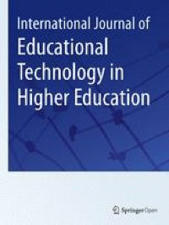Help-seeking is an essential self-regulatory and metacognitive skill. In the online learning environment, much of the learning is self-directed and there are generally less opportunities to receive help in real time. The uses of email and discussion boards are the most common method of seeking help in these environments. The current study explored students’ perceptions of the use of live chat technology for online academic help-seeking within higher education, with a focus on comparing online and blended learners’ perspectives. Participants were 246 students who were studying psychology online (n = 91) or in blended learning (n = 155) environments. The live chat technology was well received by both groups, especially for its ability to provide instant, real-time, and convenient help. Live chat was particularly well received by online learners, who were more satisfied, felt more cared about by the teaching team, and would be more likely to recommend it to others than blended learners. Further, online learners reported that live chat gave them better access to staff, and felt that this feature was a good approximation for more traditional face-to-face conversations. As an online, synchronous, private help-seeking tool between student and teacher, these findings provide a strong endorsement for the use of live chat in higher education, particularly for online learners.
Research and publish the best content.
Get Started for FREE
Sign up with Facebook Sign up with X
I don't have a Facebook or a X account
Already have an account: Login
The many dimensions of Digital Learning - edtech, eLearning, blended, authentic, online
Curated by
Learning Futures
 Your new post is loading... Your new post is loading...
 Your new post is loading... Your new post is loading...
|










